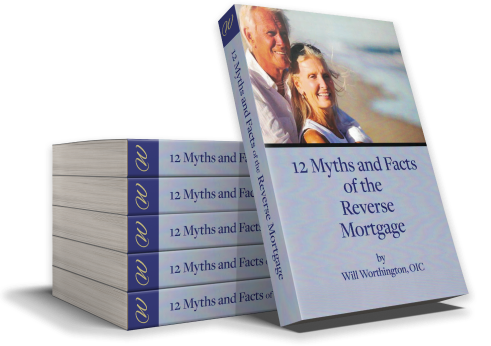The Pros of Reverse Mortgages
1. Financial Flexibility
A significant advantage of a reverse mortgage is the financial flexibility it provides. Instead of making monthly mortgage payments, you can receive funds through various options, such as monthly payments, a line of credit, or a lump sum. This extra income can be used for everyday expenses, medical bills, travel, or other financial needs.
2. No Monthly Mortgage Payments
One of the most significant advantages is that you don’t have to make monthly mortgage payments as long as you continue living in your home, paying property taxes, maintaining homeowner’s insurance, and keeping up with necessary home repairs. This alleviates the financial burden that traditional mortgages often carry.
3. Stay in Your Home
With a reverse mortgage, you retain ownership of your home. You can continue living in it, enjoying the familiarity and comfort you’re accustomed to, without the fear of being forced to move due to financial constraints.
4. Tax-Free Income
The funds you receive from a reverse mortgage are not considered taxable income by the Internal Revenue Service (IRS). This means that the income you receive won’t affect your Social Security benefits or Medicare eligibility.
5. Flexible Use of Funds
There are no restrictions on how you can use the funds from a reverse mortgage. Whether it’s to cover daily expenses, home repairs, medical bills, or even a once-in-a-lifetime vacation, the choice is yours.
6. Loan is Non-Recourse
A reverse mortgage is a “non-recourse” loan, which means that you or your heirs won’t be responsible for repaying more than the home’s value at the time of sale, even if the loan balance exceeds that amount.
The Cons of Reverse Mortgages
1. Accruing Interest
While you don’t make monthly mortgage payments, interest continues to accrue on the loan balance. This means that the total amount owed can grow significantly over time.
2. Impact on Inheritance
A reverse mortgage can reduce the value of your estate and the inheritance you leave to your heirs. However, your heirs can still keep the home by paying off the loan balance or by selling the property and using the proceeds to settle the debt.
3. Initial Costs
Reverse mortgages have upfront costs, including origination fees, closing costs, and mortgage insurance. It’s crucial to consider these costs when deciding if a reverse mortgage is right for you.
4. Complexity
Reverse mortgages can be complex, and it’s important to fully understand the terms and conditions. Working with a reputable lender and a housing counselor can help ensure you make an informed decision.
5. Ownership and Responsibility
While you continue to own your home with a reverse mortgage, you must meet certain obligations, including property taxes, homeowner’s insurance, and home maintenance. Failure to meet these obligations could result in defaulting on the loan.
6. Impact on Government Benefits
Receiving a lump sum payment from a reverse mortgage could potentially affect eligibility for need-based government programs like Medicaid.
Is a Reverse Mortgage Right for You?
The decision to pursue a reverse mortgage is a highly individual one and depends on your unique financial situation and goals. To determine if a reverse mortgage is right for you, consider the following:
- Financial Need: Assess your financial situation and determine if you need additional income to cover expenses, and healthcare costs, or improve your overall quality of life.
- Long-Term Plans: Consider your long-term plans for your home. If you intend to stay in your home and the associated costs are manageable, a reverse mortgage may be a good fit.
- Estate Planning: Think about your estate planning and the impact of a reverse mortgage on the inheritance you leave to your heirs.
- Financial Counseling: Seek financial counseling or advice from a qualified housing counselor or financial advisor to ensure you understand the implications and obligations of a reverse mortgage.
- Reputable Lender: Work with a reputable lender experienced in reverse mortgages to guide you through the process and provide the necessary information.
In conclusion, reverse mortgages offer financial flexibility and can be a powerful tool for seniors looking to improve their retirement years. However, they come with considerations that need to be carefully evaluated. If you’re considering a reverse mortgage, take the time to assess your financial needs, long-term goals, and seek professional guidance to make an informed decision that best suits your circumstances.
Share
by Santiago Carrillo
Share
STAY IN THE LOOP






